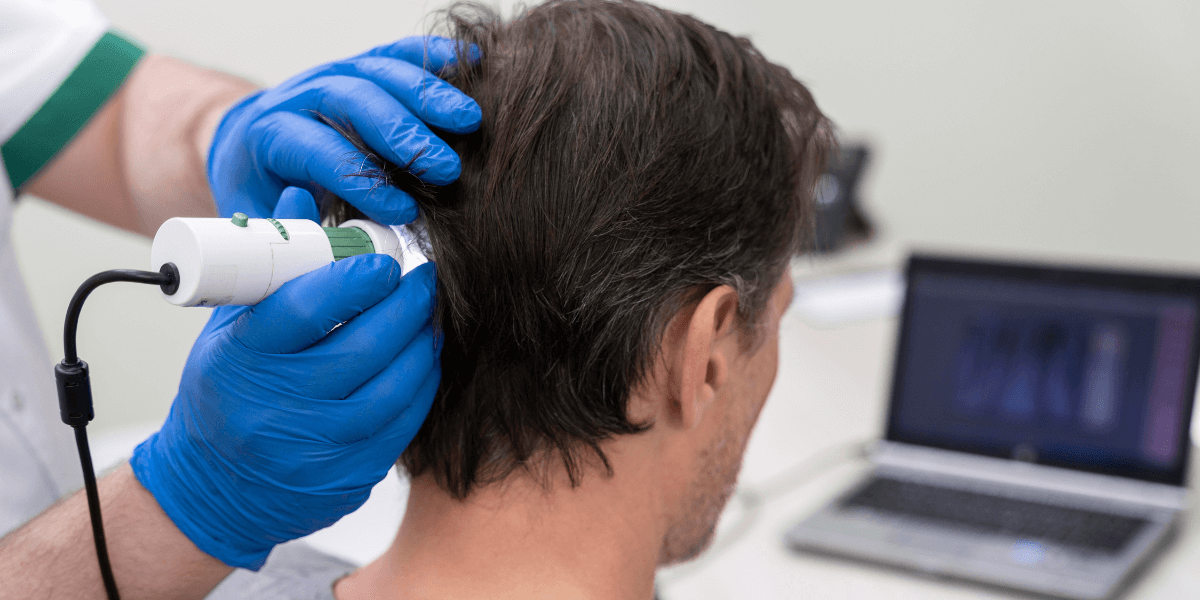


With advanced hair transplant treatments, restoring receding hairlines or thinning hair has always been a challenging task. Nevertheless, which hair transplant method you must choose to regain your dream hairline can be a big decision. While several hair loss treatment options are available, the two most commonly used techniques for hair transplantation are FUT (Follicular Unit Transplantation) and FUE (Follicular Unit Extraction). As both techniques are advantageous in different ways, let us discuss the key differences between them, highlighting their pros and technicalities in methodology, thus helping you make an informed decision.
FUE is an advanced hair transplant treatment that can be done manually and robotically. Manual FUE can be performed by a surgeon using a small punch instrument to extract hair grafts from the donor site. These grafts are then precisely transplanted onto the scalp. FUE hair transplant involves making tiny circular incisions around the upper part of the follicular unit, enabling the direct extraction of hair grafts without leaving a noticeable linear scar. Although a few scattered circular scars may remain in the donor area, they are so small that they are hardly noticeable. Robotic FUE involves using an automated hair transplant device called ARTAS that the surgeon guides. In robotic FUE, the surgeon chooses the donor site and to-be-harvested grafts, and the ARTAS robot does the transplantation part. It allows faster implantation, reducing the procedure time while ensuring precision.
FUT hair transplant involves extracting a strip of hair from the donor site (at the back of the scalp or side of the head). After that, the area is meticulously sutured, ensuring flawless closure, thus minimizing the visibility of any resulting scar. This linear scar becomes virtually undetectable, giving you a natural-looking outcome. The extracted hair grafts, each containing one to four hair follicles, are meticulously dissected under a specialized microscope and then transplanted to the recipient area. FUT cannot be done robotically. In FUT, once your surgeon removes the strip of hair, it is dissected under a microscope, isolating individual hair follicular units. As this dissection can only be achieved manually, robotic technology cannot be used. See Also: Top 13 Hair Loss Solutions for Men in 2023
The advantages of FUE are -
The advantages of FUT are -
The advantages of robotic FUE are -
Though both procedures have shown remarkable effectiveness in providing successful results, choosing between FUE and FUT depends on our unique circumstances and personal preferences. It is also good to consult a trusted hair transplant expert who will assess your specific hair loss condition and hair loss goals and ultimately recommend the most suitable procedure for you. See Also: Eyebrow Transplant vs Microblading – Which Is Better
Individuals don’t need to be concerned about their baldness or alopecia spoiling their overall look and self-esteem anymore. Instead, they can opt for hair restoration treatment to prevent hair loss while restoring the growth with precision and naturalness.
At Mane Center for Advanced Hair Restoration, we offer cutting-edge hair transplant treatments to help you achieve fuller, vibrant hair growth that looks natural and lasts longer. Our surgeon, Dr. Douglas Burka, has years of experience and expertise in performing hair loss procedures with maximum accuracy and success rates. Contact our experts today to learn more about our hair transplant methods.
When FUT is first used to maximize the results of the initial procedures, the donor area may become wider, or the scalp may become too tight in successive sessions, making FUT unable to perform. In such cases, your surgeon may recommend FUE. Nevertheless, if FUE is first used and the growth is lower than expected, you may be asked to switch to FUT.
A surgical hair transplant procedure can take 4-8 hours, depending on the type of transplant you choose and the severity of your hair loss.
You will experience only hardly visible, linear scars post-transplant.